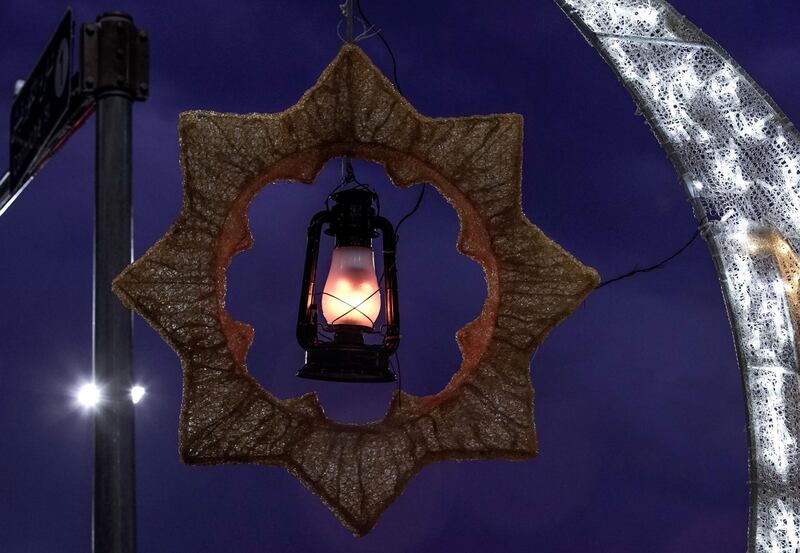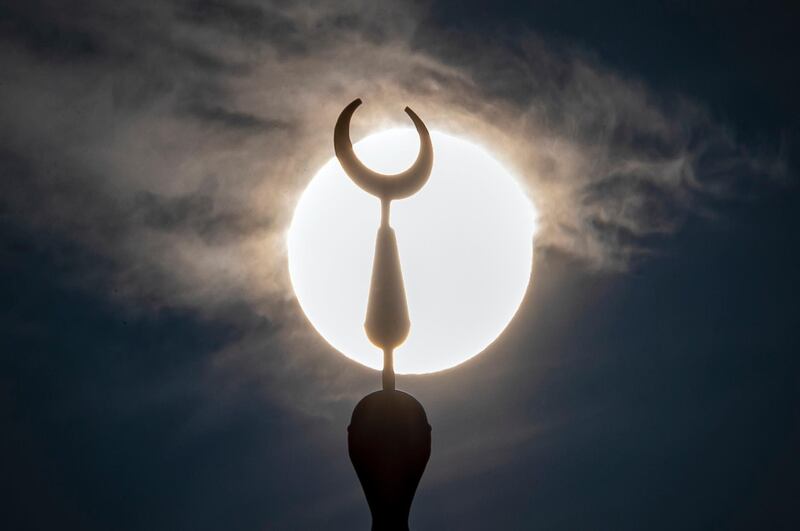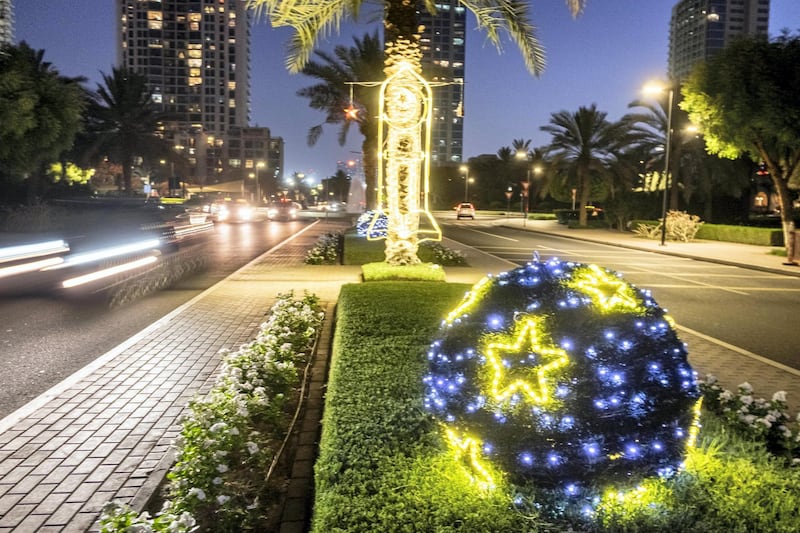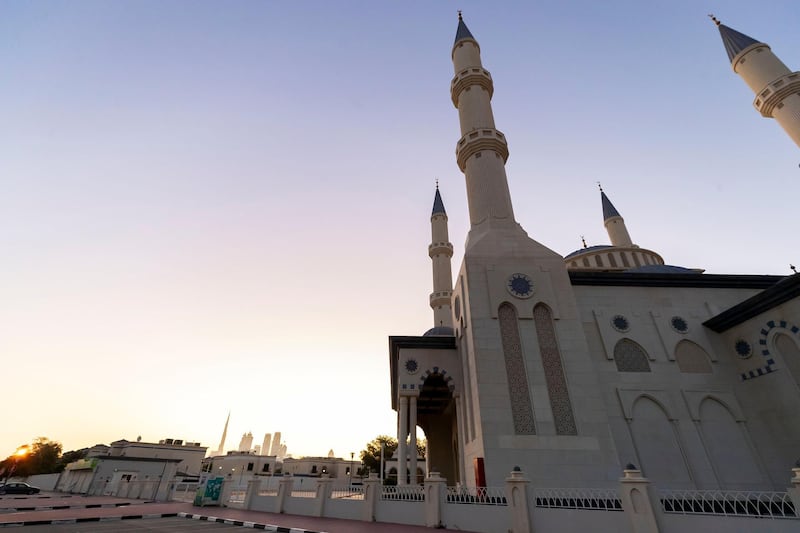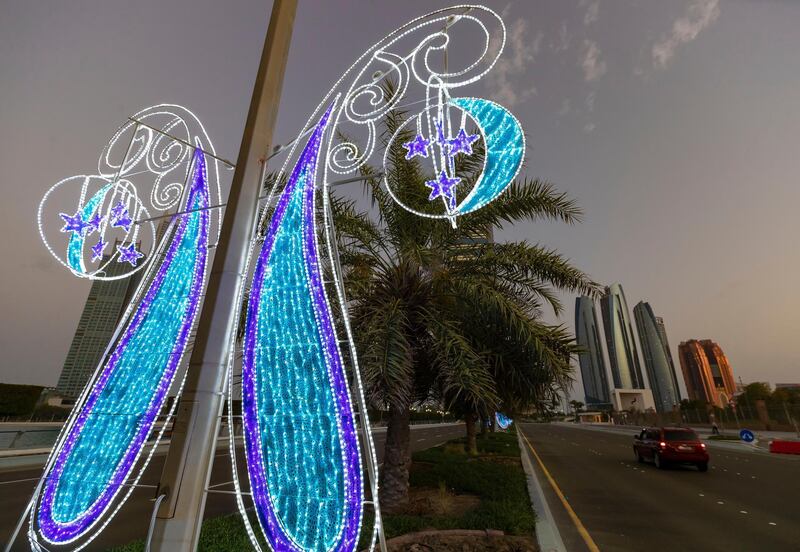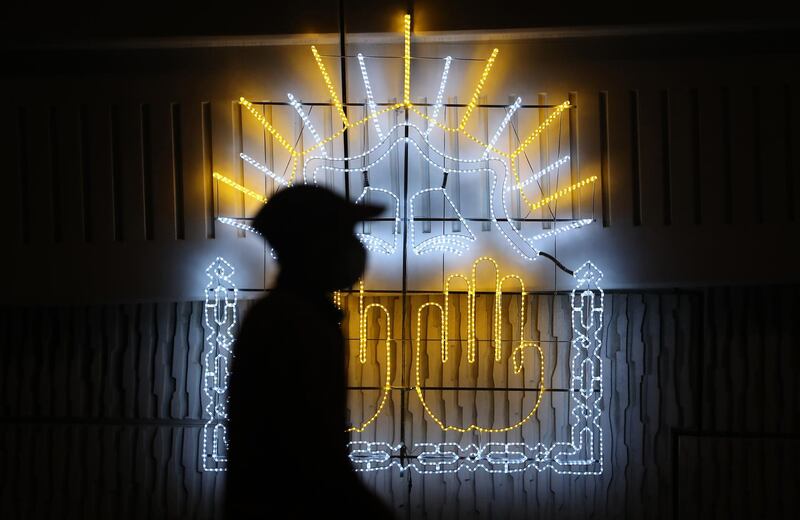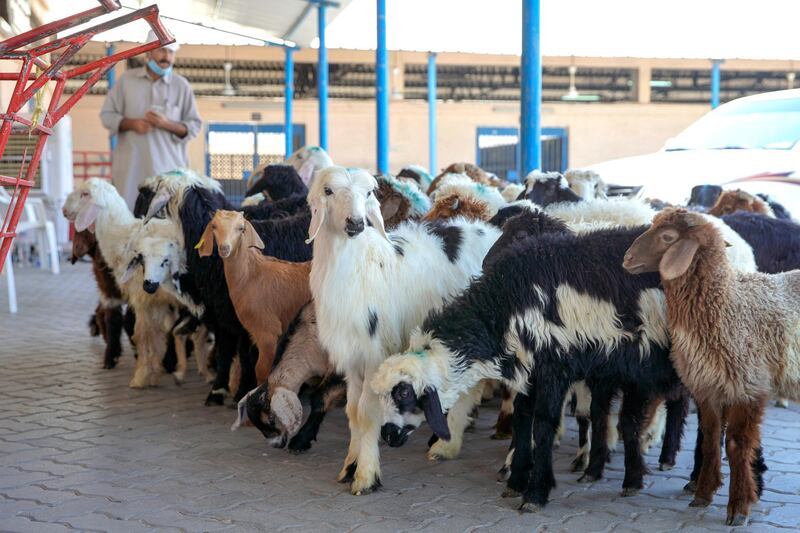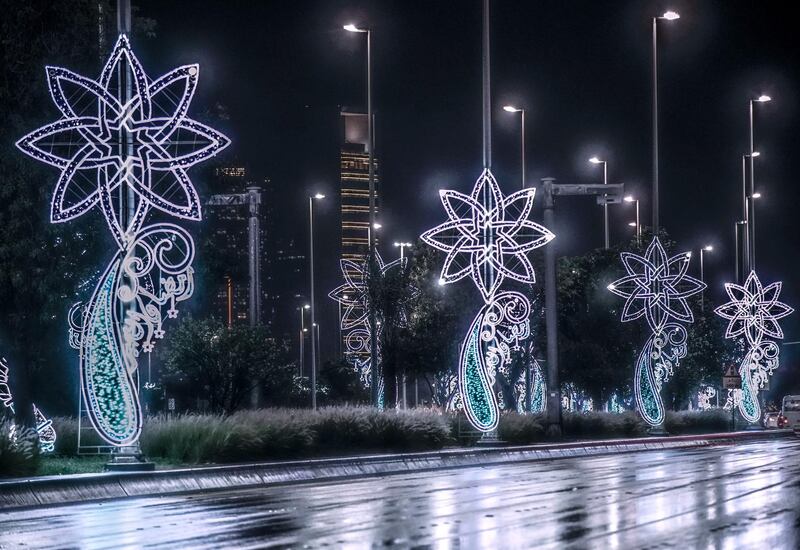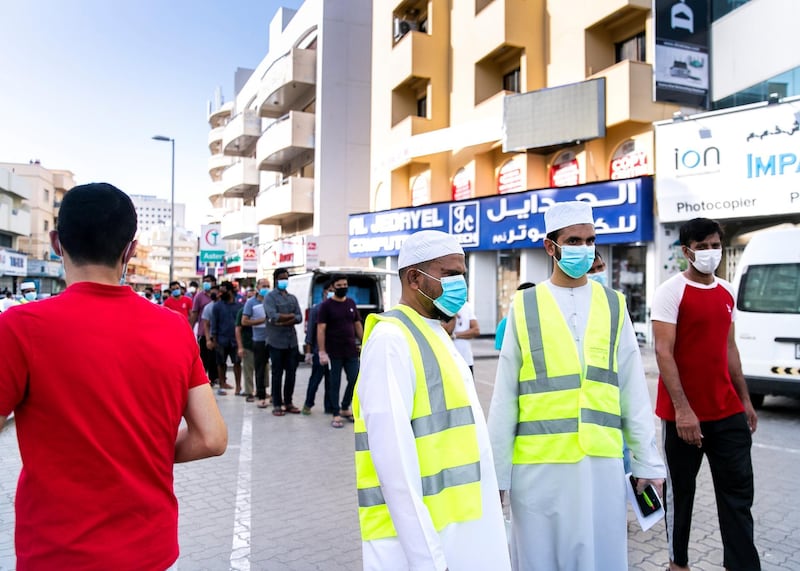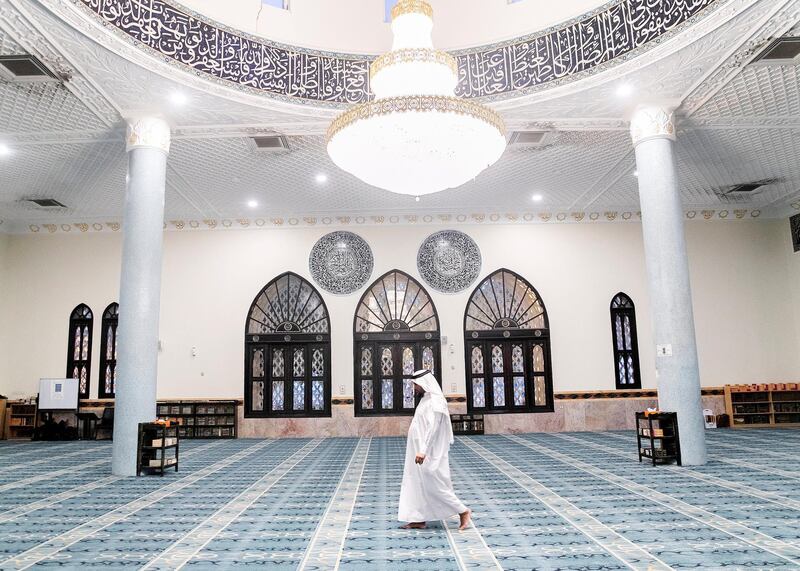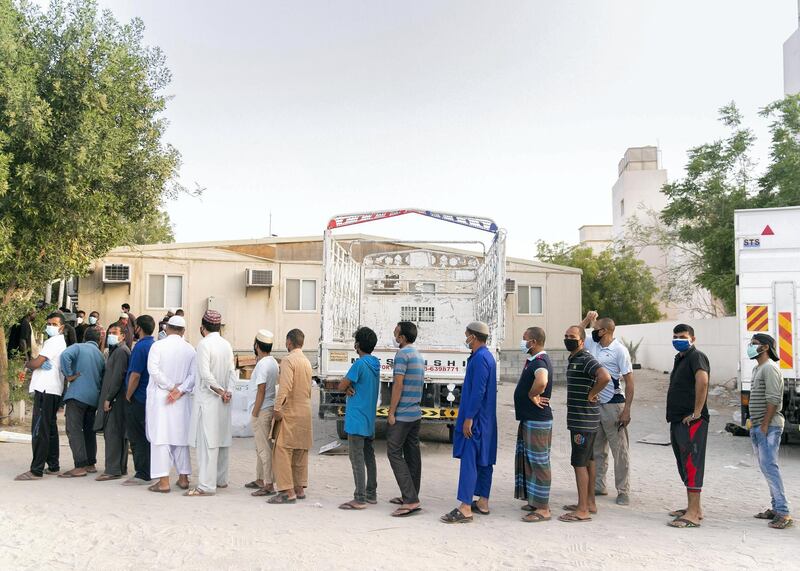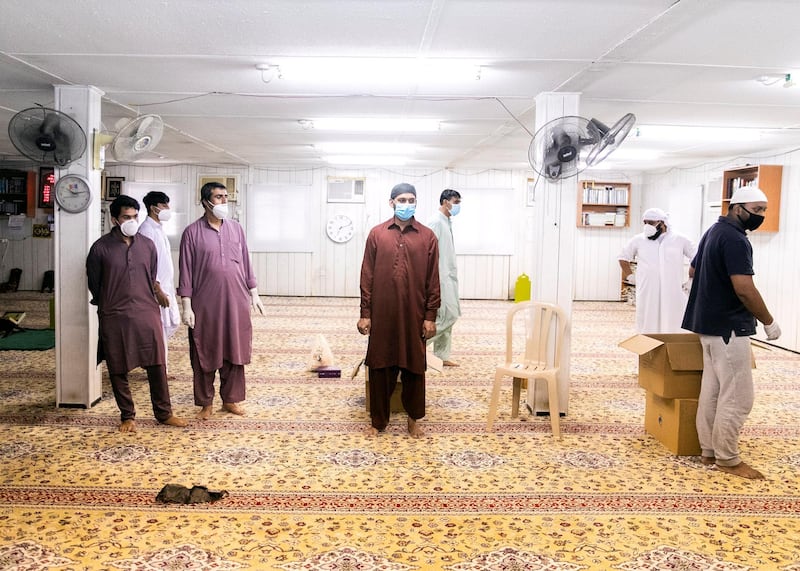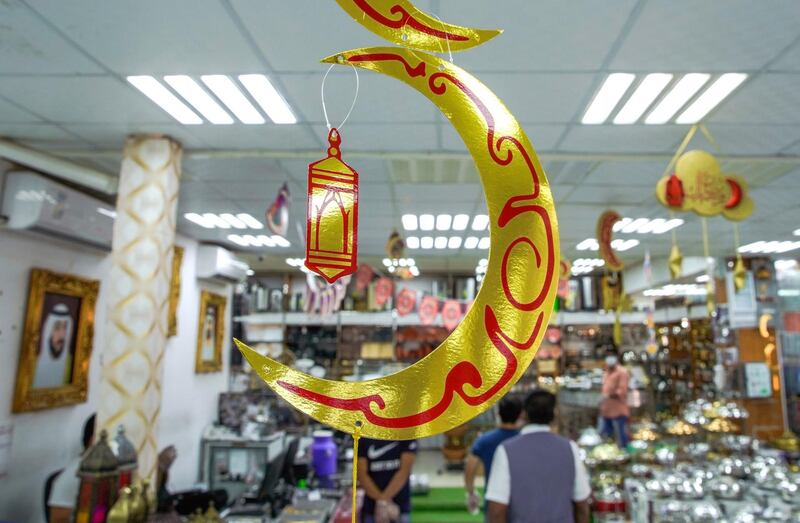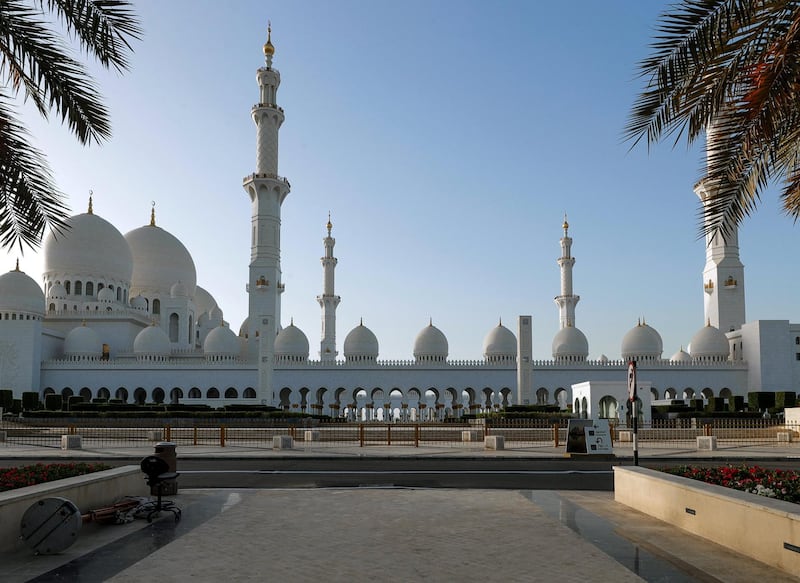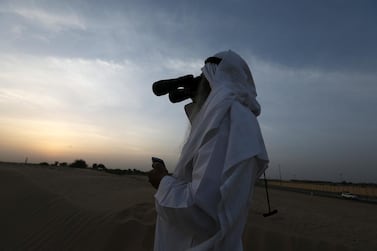The first day of Eid Al Fitr will be announced on Friday night, after the moon-sighting committee meets remotely to search for a new crescent moon.
The committee, chaired by Sultan Al Badi, Minister of Justice, will meet partly through video conference after maghrib prayers to look for the moon on Ramadan 29 and deliberate the start of a new month.
Sharia courts across the country will also follow up and inform the committee of any sightings.
If the new moon is spotted, Eid will immediately begin. If the moon is not observed, then the holiday will be celebrated the following day.
On Wednesday, the minister ordered the committee to be formed and said it would meet virtually due to the coronavirus situation.
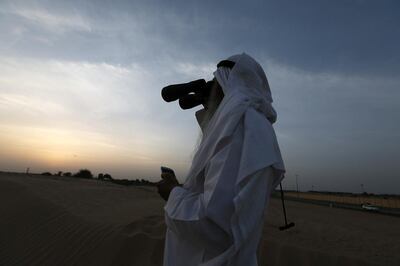
The Islamic or Hijri calendar is determined by moon cycles, which are either 29 or 30 days long. The presence of a new moon signals the start of a new month.
As it stands, Eid will either fall on Saturday or Sunday, depending on if Ramadan will last 29 or 30 days.
Eid Al Fitr, the festival of breaking the fast, begins on the first day of the new Islamic month, Shawwal, and is celebrated for up to three days depending on the country.
On Monday, astronomers from the International Astronomical Centre, based in Abu Dhabi, said they anticipated Eid Al Fitr would fall on Sunday, May 24.
Mohammed Odeh, director of the centre, said spotting the new moon would be "impossible in all Islamic countries due to the setting of the moon before the sun".
He said officials typically have a 30-minute window to see the moon once the sun sets, but if the moon sets before the sun, it would be impossible to see it.
If the new moon cannot be sighted on Friday night, the the first day of Eid would begin on Sunday – after 30 days of Ramadan.
“For countries that started Ramadan on April 24, Friday will be the 29th day of Ramadan, and since the moon is unlikely to be sighted, Saturday is likely to be the last day of Ramadan and Sunday will be the first day of Eid,” said Mr Odeh.
Public and private sector workers have already been told that their Eid holiday will begin on Ramadan 29 and last until Shawwal 3. Ramadan 29 will fall on Friday on the Gregorian calendar but Shawwal 3 will either fall on Tuesday or Wednesday, depending on whether Ramadan is made up of 29 or 30 days this year.
Holidays used to differ for public and private sector workers but these were unified by the government last year.
As with the holy month, time-honoured Eid traditions are likely to be affected by the coronavirus outbreak.
Although restrictions on travel and trade have been eased, festivities are set to be more restrained with local authorities calling on families not to gather and risk spreading the virus.
On the first day of Eid, Muslims would typically wake up just before dawn to perform Eid prayers at mosques.
During Eid, Muslims tend to wear new clothes and visit family and friends.
This year's celebrations are expected to be muted, with mosques still closed and gatherings remaining limited to groups of no more than five.
In recent years, it became common practice to travel during Eid but there may instead be a rise in staycations this year as flights have been grounded to prevent the spread of the virus.
